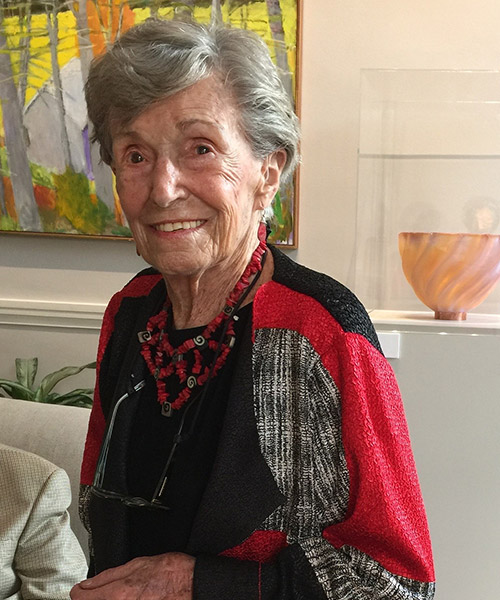Dr Susan E. Cernyak-Spatz ״ל

I was born in Vienna, Austria in 1922. I fondly remember shabbat dinners and lighting candles with my parents and grandparents, who had deep roots in Vienna. When I was seven we moved to Berlin and stayed for nine years. In 1936 we moved back to Berlin and then to Prague as Hitler moved into Vienna in 1938. My mother and I were sucked into the maelstrom when she refused to move to Brussels, where my father had found a safe place for us.
In 1942 we were taken to the Theresienstadt concentration camp in German occupied Czechoslovakia. Two days after arriving, my mother and I were separated. She was deported to the Sobibor death camp in Poland and murdered. In 1943 I was sent to Auschwitz-Birkenau and then in 1945, on The Death March to Ravensbruck Women’s Camp in Germany as the Russian Army approached Berlin. I was one of 15 girls who survived because of a humane action by an SS officer in a very inhumane world. The Germans were trying to impress the liberators and handed us to the American soldiers and Red Cross. Someone asked a soldier where we should go, and he responded, “Go back to where you came from”. These 18 or 19-year-old soldiers, who traveled across the world to help the oppressed people of Europe, didn’t know what was taking place in those camps or that they even existed.
Following the war, I worked as an interpreter for the British and was briefly reunited with my father in Brussels. I married a soldier and in 1946 moved to his hometown of Alton, Illinois, eventually settling in Springfield, Missouri. There was a small Jewish community, including other refugee families, where my three children were raised and attended religious school and services. In 1964, I was a 41-year-old freshman at Southwest Missouri University and then earned a PHD in German Literature from the University of Kansas. I came to UNC Charlotte in 1972 and taught for 20 years.
Charlotte is home and the most comfortable and tolerant place I’ve ever lived. Leaving a legacy gift is my way of commemorating my parents, the children and others who were lost in the Holocaust. It is confirmation that I was a contributing Jew in a community that was so supportive of me. I’m very convinced that if we don’t fight for Judaism it may be in danger. We’ve got to work fast and furious to stop anti-Semitism and promote tolerance of all religions.
Back to Index
